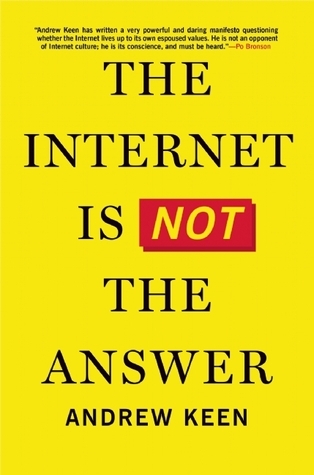What do you think?
Rate this book


288 pages, Hardcover
First published January 1, 2015
“And, of course, the more we use peer-to-peer technologies like “Popcorn Time,” the emptier movie theaters will become. In 2013, there was a 21% drop in the number of what Variety calls the “all important” 18-24 age group buying tickets to watch movies. With the popularity of products like Popcorn Time, expect that number to plummet even more dramatically in the future.”
Like most revolutionaries, they had appointed themselves as the emancipators of the people, without bothering to check with the people first.The trouble here is that his criticism may be accurate in a limited sense, but its wider blindness limits his vision. So: perhaps the internet is no answer. But neither is Keen's book. The trite thing to say is that we need "new" questions. Instead, I'd say, turn to the real revolutionaries.